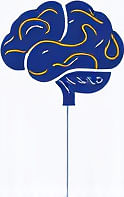Wellness Strategies for Neurodivergent Adults in Remote Work
 by Max Miller
by Max Miller
Explore practical ways to maintain wellness while working remotely as a neurodivergent adult. This article offers supportive tips on routines, focus, and balance for those with ADHD or autism, helping foster productivity and well-being in a home setting.

Remote work can present both opportunities and challenges for neurodivergent adults. Many find that working from home allows for more control over their environment, which supports better focus and comfort. For individuals with ADHD, this means creating spaces that minimize sensory overload and promote steady routines.
One key aspect is establishing a daily schedule. A consistent routine helps build predictability, which benefits those with autism by reducing anxiety. For example, starting the day with a short walk can signal the beginning of work time and aid in mental preparation. Remote work routines might include setting specific times for tasks to prevent overwhelm.
Another important area is handling distractions. In a home office, external noises or digital interruptions can disrupt concentration. Simple adjustments, like using noise-cancelling headphones, can make a difference. For adults with ADHD, breaking tasks into smaller steps reduces the pressure of large projects and maintains momentum.
Self-care plays a vital role in overall wellness. Regular breaks are essential to avoid burnout. Techniques such as the Pomodoro method, where work is done in focused bursts followed by rest, can be adapted to fit individual needs. This approach supports neurodivergent individuals by allowing time to recharge and reflect.
When it involves tools, there are several options that aid productivity without adding stress. Apps for time management can track progress without being intrusive. For instance, choosing a timer app with gentle reminders helps maintain flow. These resources are particularly helpful for building habits that enhance work-life balance.
Building Effective Workspaces
Creating an optimal workspace is crucial. A dedicated area with minimal clutter can help reduce visual distractions, which is often beneficial for those on the autism spectrum. Adding elements like soft lighting or preferred textures can make the space more inviting and less overwhelming.
Incorporating movement into the workday is another strategy. Short exercises or stretches between meetings can improve focus and energy levels. This is especially useful for neurodivergent adults who may experience physical restlessness, turning it into a positive routine element.
Fostering Connections
Social interaction shouldn't be overlooked in remote settings. Scheduled virtual check-ins with colleagues can provide a sense of community and reduce feelings of isolation. For individuals with ADHD, these interactions offer structure and opportunities for casual engagement without the intensity of in-person events.
Mindful practices, such as brief meditation sessions, can support emotional regulation. Starting with just a few minutes a day helps build resilience and clarity, making it easier to handle work demands. This practice aligns well with wellness goals for wellness in remote environments.
Practical Hacks for Balance
Here are some actionable hacks:
- Use visual schedules to outline daily tasks, aiding in planning and reducing uncertainty.
- Set boundaries with family or roommates to protect work time, ensuring a clear separation.
- Experiment with different work postures, like standing desks, to maintain comfort and prevent fatigue.
- Keep a journal for tracking successes and challenges, which promotes self-awareness and adjustment.
These hacks emphasize personalization, as what works for one person may vary. The goal is to find methods that align with individual preferences and needs.
In closing, adopting these strategies can lead to more sustainable remote work experiences. By prioritizing wellness, neurodivergent adults can achieve greater productivity and satisfaction. Remember, it's about finding what supports your unique way of thriving.
